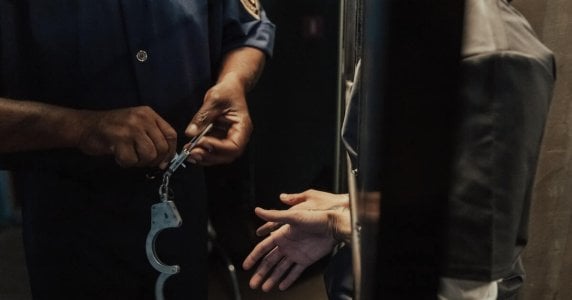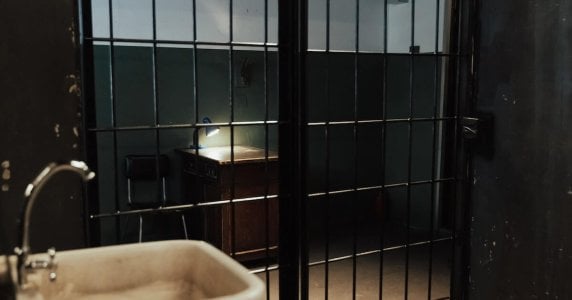‘Australia’s worst female serial killer’ finally free: Kathleen Folbigg shares her story and gives an inside look at her life outside prison
- Replies 25
Content warning: This article mentions infanticide, which may be triggering for some readers. Discretion is advised.
For the first time in 20 years, Kathleen Folbigg will be able to enjoy the simple pleasures of life outside prison after being granted an unconditional pardon in a surprise turn of events.
Once branded as ‘Australia’s worst female serial killer’, the 55-year-old Folbigg, who had been serving a 25-year sentence for the murder of her four children, was pardoned on Monday after an inquiry found reasonable doubt regarding her guilt.
The shocking news, no doubt a relief to her and her supporters, sheds light on a controversial and heart-wrenching case that has captivated the nation for two decades.
As we all know, the comfort of home is invaluable. Nothing compares to being surrounded by loved ones, indulging in a perfectly brewed cup of tea, and settling down in a warm, cosy bed. And it's precisely these simple acts of freedom that Kathleen Folbigg has been denied for so long.
Her first moments as a free woman were documented in a candid video shared with the public. The footage shows her embracing her long-time friend and unwavering supporter, Tracey Chapman, at her Glenreagh residence.
Kathleen's first activities may seem trivial, yet they hold a deep significance. She took pleasure in stirring her tea with a metal spoon, exclaiming, ‘I haven’t had a metal one in 20 years.’
This small yet precious moment speaks to the broader experience of reclaiming her freedom.
Kathleen's plans for her first night outside prison included a delicious T-bone steak, new pyjamas, and the comfort of a regular bed – luxuries denied to her during her incarceration.
‘I can’t thank everybody enough for all the support and hard work that has gone into reaching this moment,’ Folbigg said in the video.
‘I’m beyond happy. It’s ridiculous. I’m in shock, so thank you.’
The remarkable turn of events came after an inquiry found reasonable doubt about her guilt. Kathleen Folbigg was originally convicted of killing her children, Sarah, Caleb, Laura, and Patrick, between 1989 and 1999.
Kathleen has always maintained her innocence, saying her children died of natural causes.
NSW Attorney-General Michael Daley revealed the decision to release Folbigg, saying: ‘This morning, I met with the governor. I recommended that the governor exercise the royal prerogative of mercy and grant Ms Folbigg an unconditional pardon. The governor agreed. Ms Folbigg has now been pardoned.’
The subsequent inquiry considered new scientific and psychiatric evidence, leading to Chief Justice Tom Bathurst concluding there was reasonable doubt about her guilt in each of the crimes.
According to reports, Kathleen was just 20 years old when she met and married Craig Folbigg, her now ex-husband. Within a year, she became pregnant with Caleb – the couple’s first son, born in February 1989. Caleb lived for 19 days.
The following year, Patrick was born. He passed at eight months.
Two years later, the couple had a daughter, Sarah, who lived for only 10 months. In 1999, the couple’s fourth and longest-lived child, Laura, was born. She later passed away at only 18 months old.
Police investigated the deaths of all four children when Laura passed away. But it was more than two years after that Kathleen was arrested and charged. However, an examination of the remains of the children failed to find any physical evidence that foul play was involved in their deaths.
But without any other plausible explanation for their deaths, Kathleen remained the suspect as she was their mother and primary carer.
In 2003, she was charged with 40 years in prison. The judge at the time recalled her troubled past and said that Kathleen’s prospects of rehabilitation were ‘negligible’.
A team of immunologists at the most recent inquiry revealed that Kathleen’s daughters possessed a genetic mutation called CALM2 G114R, which can cause sudden cardiac arrest.
Evidence also revealed that her sons possessed a different genetic mutation – one linked to sudden-onset epilepsy in mice.
With her newfound freedom, Folbigg will begin to rebuild her life and regain the experiences she has lost over the past 20 years. Her case has sparked debate about the need for an independent body to review miscarriages of justice in Australia.
Her lawyer, Rhanee Rego, commented on the case, stating, ‘This case reminds us that we are all human and our legal system can make mistakes. It also reminds us that we have the capacity to do great things in the pursuit of truth.’
As for Kathleen Folbigg, the road to healing and adjusting to her new life outside prison will no doubt be challenging, but the support and love of friends will help her persevere.
In a touching tribute, Chapman fondly remembered the children, expressing how much they are missed every day. For Kathleen and those closest to her, this new chapter will be marked by the memory of those four precious lives lost, as well as the determination to seek truth and justice within the legal system.
 Do you have any comments or thoughts about this story? Let us know in the comments below.
Do you have any comments or thoughts about this story? Let us know in the comments below.
For the first time in 20 years, Kathleen Folbigg will be able to enjoy the simple pleasures of life outside prison after being granted an unconditional pardon in a surprise turn of events.
Once branded as ‘Australia’s worst female serial killer’, the 55-year-old Folbigg, who had been serving a 25-year sentence for the murder of her four children, was pardoned on Monday after an inquiry found reasonable doubt regarding her guilt.
The shocking news, no doubt a relief to her and her supporters, sheds light on a controversial and heart-wrenching case that has captivated the nation for two decades.
As we all know, the comfort of home is invaluable. Nothing compares to being surrounded by loved ones, indulging in a perfectly brewed cup of tea, and settling down in a warm, cosy bed. And it's precisely these simple acts of freedom that Kathleen Folbigg has been denied for so long.
Her first moments as a free woman were documented in a candid video shared with the public. The footage shows her embracing her long-time friend and unwavering supporter, Tracey Chapman, at her Glenreagh residence.
Kathleen's first activities may seem trivial, yet they hold a deep significance. She took pleasure in stirring her tea with a metal spoon, exclaiming, ‘I haven’t had a metal one in 20 years.’
This small yet precious moment speaks to the broader experience of reclaiming her freedom.
Kathleen's plans for her first night outside prison included a delicious T-bone steak, new pyjamas, and the comfort of a regular bed – luxuries denied to her during her incarceration.
‘I can’t thank everybody enough for all the support and hard work that has gone into reaching this moment,’ Folbigg said in the video.
‘I’m beyond happy. It’s ridiculous. I’m in shock, so thank you.’
The remarkable turn of events came after an inquiry found reasonable doubt about her guilt. Kathleen Folbigg was originally convicted of killing her children, Sarah, Caleb, Laura, and Patrick, between 1989 and 1999.
Kathleen has always maintained her innocence, saying her children died of natural causes.
NSW Attorney-General Michael Daley revealed the decision to release Folbigg, saying: ‘This morning, I met with the governor. I recommended that the governor exercise the royal prerogative of mercy and grant Ms Folbigg an unconditional pardon. The governor agreed. Ms Folbigg has now been pardoned.’
The subsequent inquiry considered new scientific and psychiatric evidence, leading to Chief Justice Tom Bathurst concluding there was reasonable doubt about her guilt in each of the crimes.
According to reports, Kathleen was just 20 years old when she met and married Craig Folbigg, her now ex-husband. Within a year, she became pregnant with Caleb – the couple’s first son, born in February 1989. Caleb lived for 19 days.
The following year, Patrick was born. He passed at eight months.
Two years later, the couple had a daughter, Sarah, who lived for only 10 months. In 1999, the couple’s fourth and longest-lived child, Laura, was born. She later passed away at only 18 months old.
Police investigated the deaths of all four children when Laura passed away. But it was more than two years after that Kathleen was arrested and charged. However, an examination of the remains of the children failed to find any physical evidence that foul play was involved in their deaths.
But without any other plausible explanation for their deaths, Kathleen remained the suspect as she was their mother and primary carer.
In 2003, she was charged with 40 years in prison. The judge at the time recalled her troubled past and said that Kathleen’s prospects of rehabilitation were ‘negligible’.
A team of immunologists at the most recent inquiry revealed that Kathleen’s daughters possessed a genetic mutation called CALM2 G114R, which can cause sudden cardiac arrest.
Evidence also revealed that her sons possessed a different genetic mutation – one linked to sudden-onset epilepsy in mice.
With her newfound freedom, Folbigg will begin to rebuild her life and regain the experiences she has lost over the past 20 years. Her case has sparked debate about the need for an independent body to review miscarriages of justice in Australia.
Her lawyer, Rhanee Rego, commented on the case, stating, ‘This case reminds us that we are all human and our legal system can make mistakes. It also reminds us that we have the capacity to do great things in the pursuit of truth.’
As for Kathleen Folbigg, the road to healing and adjusting to her new life outside prison will no doubt be challenging, but the support and love of friends will help her persevere.
In a touching tribute, Chapman fondly remembered the children, expressing how much they are missed every day. For Kathleen and those closest to her, this new chapter will be marked by the memory of those four precious lives lost, as well as the determination to seek truth and justice within the legal system.
Key Takeaways
- Kathleen Folbigg was pardoned of her 2003 murder conviction and released from prison after an inquiry found reasonable doubt regarding her guilt.
- She has always maintained her innocence, claiming her children died from natural causes.
- Folbigg's lawyer, Rhanee Rego, emphasised the need for Australia to consider implementing an independent body for reviewing miscarriages of justice.










